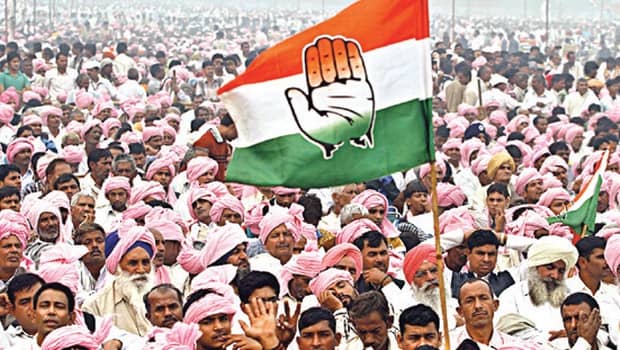The monsoon session of the parliament is all set to commence on 18th of July and as it’s been happening for the last many sessions now, there is a lot of buzz around the GST Bill getting passed in the Rajya Sabha finally. The ruling BJP has got a boost with the recent Rajya Sabha elections and the strength of the Congress has reduced. The BJP now has 54 seats and the NDA has 72 seats, while the Congress now has 60 seats with the UPA having 66 seats. The regional parties occupy the remaining seats. Since the GST Bill is a constitutional amendment, it would require two-thirds majority in the Rajya Sabha for the bill to be passed. This means that 163 members will have to vote in favor of the bill in its current form, if all the 245 members are present in the house.
The government is all set to introduce the GST Bill on the very first day of the parliament and ask for a vote. But one can be rest assured that the Congress will put to force all the dirty tricks available in its repertoire to stop the passage of the bill. The recent killing of Hizbul militant Burhan Wani and the violence that has been taking place in the Kashmir valley in the aftermath and also the arrest warrant against the family of Mohammed Akhlaq have given the Congress ammunition to stall the proceedings of the parliament.
As on today, all the political parties except the Congress and the AIADMK are in support of the GST Bill.
Since it was the Congress government that originally conceived the GST and since it is a constitutional amendment, the BJP would hope to take the Congress on board, but the BJP should have a plan B in place in case the Congress manages to get the support of some of the other regional parties. West Bengal CM Mamata Banerjee has been openly supporting the passage of the GST Bill and the other consuming states like Bihar, Odisha, Kerala and UP will most certainly back the bill as they stand to gain through higher tax collection.
The Congress has asked for three amendments to the bill in the current form viz, capping the GST rate in the bill, a dispute resolution panel headed by a former Supreme Court judge and doing away with the 1 percent additional levy for the manufacturing states. The BJP is most likely to agree on doing away with the 1 percent additional levy, but is not likely to agree to the other two demands. The demand to cap the GST rate in the bill will definitely not be incorporated by the BJP as it will then get very difficult to change the tax rates in case of a crisis or a change in the economic climate.
Let us now look at the various scenarios that can unfold:
Scenario 1 – All members present in the house and the Congress and its allies opposing the bill
In this scenario, the government will be able to pass the bill as only 66 members would be opposing the bill, while the remaining would vote for the bill.
Scenario 2 – Congress manages to get the support of the communist parties
It is highly likely that the communist parties will join the Congress in opposing the bill, as they feel the bill will cripple the federal structure of India. Moreover, it is a known fact that the communist parties are sympathizers of terrorists and this would be more reason for them to join the Congress in disrupting the parliament. In this scenario, it would be touch and go for the BJP. They must seriously think of a Plan B and either try to get the AIADMK on their side or persuade them to abstain from voting. If they manage to do that, then they would still be able to pass the bill. In all likelihood, this is the scenario that will play out.
Scenario 3 – BJP manages to convince the Congress on the contentious issues
This is the ideal scenario where the Congress is also brought on board. Efforts are going on in this direction and the Modi government is in talks with the Congress party to come to an agreement. Finance Minister Arun Jaitley and Parliamentary Affairs Minister Ananth Kumar met with the top Congress leaders Ghulam Nabi Azad and Anand Sharma to persuade them to support the bill. There is an all-party meet to be held on 17th July to discuss the upcoming session. One can hope for a breakthrough before the start of the parliament, but given the obstinacy of the Congress, it doesn’t look easy to get them inline.
To conclude, it is important for the GST to be passed during the monsoon session of the parliament. The GST has the potential to increase the national GDP by a few basis points and streamline the indirect taxation structure. The GST was originally conceived by the Congress and significant efforts have been made by the current NDA government to have a majority of the states supporting the bill. It is clear that the Congress party has been opposing the bill for strictly political reasons and some of their demands like the GST cap rate are unjustified. In spite of the fact that the numbers are better for the BJP to pass the bill this time around, it is not going to be a cakewalk and the BJP must have an alternate plan in place to have the bill passed during this session.




























